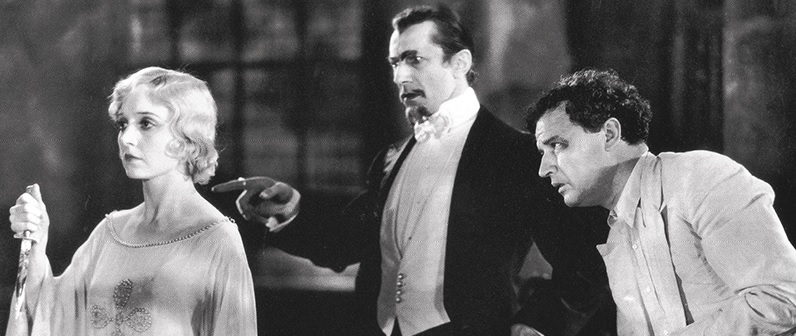
David Annwn Jones introduces his new book, Re-envisaging the First Age of Cinematic Horror, 1896-1934: Quanta of Fear.
Currently, if you Google the name Nosferatu, you’ll receive well over six million hits – that is in relation to a silent film nearly a century old, and for long considered lost. The remarkable longevity of fear and wonder associated with this early film is one that should make any serious fan of cinema pause for thought.
It is easily-established that this memorable film was not an anomaly in its notorious power to chill audiences. F. W. Murnau’s famous creation was also preceded by twenty-five years of cinematic horror productions, and surrounded in the year of its appearance by other famous movies such as Benjamin Christensen’s celebrated Häxan, a highly-controversial history of black magic. Even given the number of silent films currently missing, the field of early horror film production is actually a crowded vista. Yet horror cinematic productions of this early period are often side-lined or denigrated by some more recent critics calling them ‘Gothic’, ‘fantastic’ works or ‘films of fear’, in deference to the Universal ‘talkie’ productions Dracula and Frankenstein in the early 1930s. Though it might be fascinating to consider why anyone would use the template of later films in this way, even a cursory search of sources contemporary with the films’ first appearances reveals critics as eminent as Lotte Eisner and Béla Balász writing of them as fully-fledged and terrifying horror films.
How did horror emerge in films after 1896? How did the First World War affect screenplays, plots and characterisation? How did horror first make the leap from silent to sound? Such questions open new perspectives in our appreciation of early visual media. There is obviously an urgent need to re-envisage this amazingly rich and varied field of cinematic activity, especially in relation to the work of directors from France, Spain, England, Moravia, Germany, Italy, Denmark, Mexico and the USA, some of whose works have never previously been considered in this context.
David Annwn Jones lectures for the Open University in Leeds and Manchester. He is also a critic, poet, playwright and acknowledged authority on the phantasmagoria magic lantern-show.


